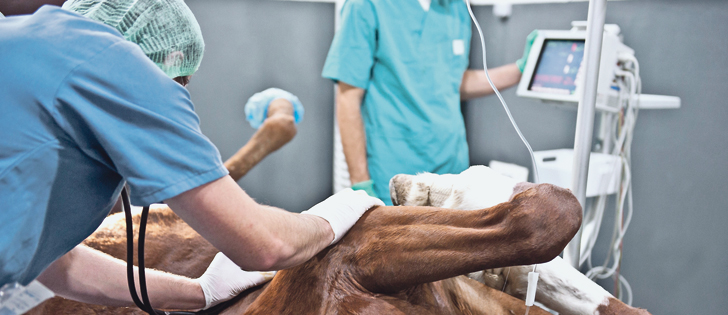SHERWOOD PARK, Alta. — For many people ending a horse’s life is like putting down the family pet.
Owners do not want the animals to suffer and once the deed is done, there is a grieving process that could last months, said Dr. Carolyn Stull, a specialist in animal welfare at the University of California, Davis’s school of veterinary medicine.
“Death of horses and quality of life decisions is probably more similar to the rituals we offer to companion animals,” she said at the Alberta horse conference held last month in Sherwood Park.
Read Also

Agriculture ministers commit to enhancing competitiveness
Canadian ag ministers said they want to ensure farmers, ranchers and processors are competitive through ongoing regulatory reform and business risk management programs that work.
“How we treat their death de-pends on whether we consider them a companion animal or if we consider them livestock,” she said.
“Very few education programs include death and dying in their curriculum even though each horse will go through this process,” she said.
In the United States, most livestock goes to slaughter plants, but horse slaughter for food production is illegal. Despite that, 125,600 American horses were slaughtered for human consumption in 2015, with 40,000 shipped to Canada for processing, while the rest were sent to Mexico.
Yet most horses in the U.S. are still put down within the country and that means other options are needed if slaughter is not possible.
Stull said many people have a difficult time deciding when to euthanize. There are a number of variables that may come into play. The horse may be old, sick, injured, in severe pain, dangerous or unwanted. It may have been caught up in a catastrophic event, such as a flood or fire, or it may have been neglected and starving.
It often comes down to an ethical decision and those faced with the choice usually want a painless and easy death for the horse, especially if it is suffering from an incurable or painful disease or injury.
Old age gradually compromises horses. Animals that have lost 20 percent of their body weight and are unable to reach food and water or struggle to stand are near death.
Many livestock industries have standard operating procedures to deal with the death of an animal on the farm. Horse owners and handlers must do the same, Stull said.
“Everyone on the staff knows when it is time. Education builds confidence in this,” she said.
There might be a brief written plan on what to do when the time comes and it needs to include an endpoint that spells out a limit on the maximum amount of money that will be spent for treatment.
The plan should include the preferred euthanasia method and contain the veterinarian’s contact information.
“If you are a stable manager, it might be a good idea to have all this (discussed) with your clients and have them fill out a form so you know their wishes and desires for their horse,” she said.
Euthanasia methods vary and local regulations should be checked to see what is allowed.
A horse can be put down with a gunshot or captive bolt, although the person carrying out the task must be skilled because human safety is a consideration. The correct location in the head must be found so death is instantaneous.
As an alternative, a veterinarian can administer barbiturates.
Carcass disposal is the next issue.
Rendering plants might reject a horse that received barbiturates or medications because they do not want these products in pet food.
Some local regulations do not allow burial, and composting is illegal in all areas. Cremation is expensive and there are a lot of ashes. Some landfills require special permits to accept dead animals.
She advises horse owners and stables find out about available carcass disposals methods that comply with local regulations.
















